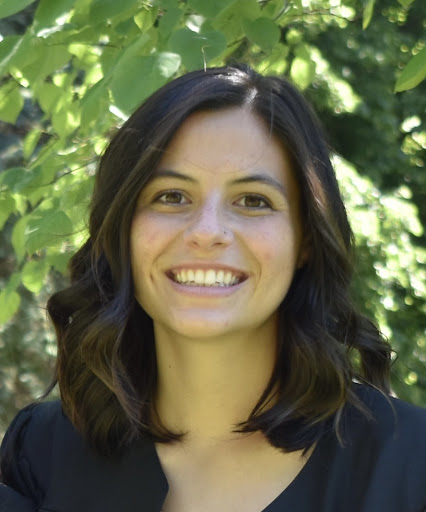This Q&A highlight features Ellie Mamantov, recipient of an Honorable Mention in the 2021 CRA Outstanding Undergraduate Researchers award program. Ellie graduated from Carleton College in June 2021 with a double major in computer science and psychology. She is now a computer science PhD student at Yale University. This interview has been edited for length and clarity.
What originally influenced you to consider doing research as an undergraduate?
I was inspired by the community I was in. Carleton students are known for being passionate about their interests, and as an undergraduate-only institution, Carleton affords many opportunities for undergraduates to get involved in research. I was excited by all of the research my peers were doing, and I wanted to get involved myself. Also, when I started college, both of my older sisters were in PhD programs, one in biology and one in computer science. They were active in research as undergraduates and spoke highly of their experiences.
How did you find your first research opportunity?
During my first year as an undergrad, I met an older student studying computer science and psychology, which is an uncommon double major at Carleton. When I said I was interested in both majors as well, she encouraged me to apply to the Perception Lab, a psychology research lab that investigates the mechanisms behind how people perceive speech and recognize spoken words. I worked in the lab as a research assistant from my second year at Carleton until graduation, supporting human-subjects experiments, conducting literature reviews, and analyzing results. Even though I realized I was more interested in interdisciplinary work that combined my interests in computer science and psychology, my time in the Perception Lab was a fantastic experience that taught me how to perform robust research.
After you realized you wanted to do interdisciplinary research, how did you pursue such work?
Over the summer between my junior and senior years, I looked for opportunities to use my human-subjects research skills within CS research. I applied to the Robotics Institute Summer Scholars (RISS) program at Carnegie Mellon University (CMU), and Dr. Henny Admoni’s Human and Robot Partners (HARP) Lab welcomed me for the summer. This was a great experience that introduced me to robotics research for the first time.
Could you tell us more about your project in the HARP Lab?
I worked closely with Ada Taylor, a PhD student, to investigate how people react to robots’ approach trajectories. Our goal was to increase the legibility of robot motion within a complex, dynamic environment such as a restaurant. In other words, how can we help human observers make inferences about a robot’s goals? We published our work in the Social Robot Navigation workshop at the Robotics: Science and Systems 2021 conference under the title, Wait Wait, Nonverbally Tell Me: Legibility for Use in Restaurant Navigation.
Since human-robot interaction (HRI) research has traditionally relied on in-person studies, the pandemic made it difficult to design an experiment. As I built an online framework to capture the sentiments of our human participants, there was a steep learning curve about how to measure behavior and cognition online. I learned how to be flexible and adapt as a researcher.
What challenges did you face when getting started in research? What did you learn from them?
I felt a little intimidated when applying to RISS. I had never studied or worked with robotics before, so I felt like I would be really behind. However, I learned quickly that people in the department had come to robotics from all different types of academic backgrounds, and I could contribute my own unique background. I’ve struggled with self-confidence when it comes to research, especially in computer science. But I remind myself that I can ask questions and take time to read and learn.
I also found reading academic papers really challenging at first. It can be quite demoralizing to read a paper when you can’t comprehend a lot of it. Through a lot of practice, I’ve learned how to gather the important takeaways and identify what questions I should ask or which concepts I should read more about.
How has participating in research shaped your professional path?
Participating in research, both at Carleton and CMU, helped me realize I wanted to pursue a PhD, which I’m now doing at Yale. My time at CMU directly shaped my current HRI research interests, but my psychology research at Carleton sparked my respect and excitement for research.
Do you have any advice for other undergraduate students looking to get into research?
Just be eager to get involved! Even if a project doesn’t exactly align with what you think are your interests, you will still learn new skills and techniques, and you might discover new interests!
— Edited by Ian Ludden
